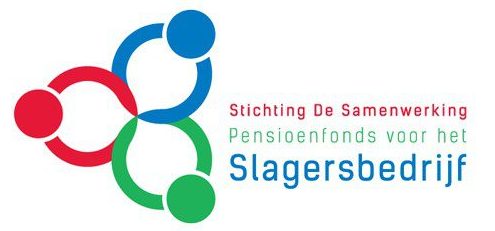

“When you are managing the retirement fund of members and pensioners, you also need to know exactly how you are doing it. Other people can advise you, but you are the ones who need to make the decisions. And that is only possible if there is sufficient clarity on the fund’s mission and view”
Frans van de Veen – Board Member
The foundations: adopt a transitional mindset
Until 2012, the Fund had signed up to the Environmental, Social and Governance (ESG) policy of their then investment manager and used this as the selection criteria to ensure alignment, recognising the significant financial risks posed by changes in the environment and society.
In 2015, the Fund decided to put together its own ESG policy. “We stressed in our investment principles that ESG factors are an important basic principle for the pension fund. This led to the triangle [risk, return and fees] suddenly becoming a square: we added ESG as an important factor. Our fiduciary manager showed us that we were in fact not restricting performance. After all, you run less risk in the long term with sustainable investment. This increases the chance of earning a higher return”, noted Frans van de Veen, Board member.
Moreover, some stakeholders of the fund considered it increasingly important that the money was invested in companies that take social and climate factors into account. It was concluded that companies that have a major negative impact on society do not suddenly become sustainable. The Fund formulated a number of requirements for choosing investments. It introduced an exclusion policy for companies that have a negative impact, for example, those that have high CO2 emissions or treat their employees poorly. Furthermore, the Fund would also focus on having a positive impact on society, but always with the main principle being that sufficient returns are made. Finally, the new policy had to be cheaper to implement and less complicated!
Principle 1: Set impactful objectives
Frans: “Gather all the facts, opinions and views on a topic until you are certain that everyone is talking about the same thing. I noticed that the discussions become more animated and the engagement greater when you talk about socially relevant topics. Make sure you include several views in the discussions. Opposing views are important to objectivity!”
Once consensus had been reached on how and what, it was time to select investments. Frans: “The priority here was that we wanted to use the investments to make a positive contribution to people and the world in which they live [i.e. to create a positive impact]. For each asset class we examined what progress we could make in relation to each factor – environmental, social and governance. Together with our fiduciary manager, we deliberately opted for the themes of food, labour, climate and water [because of their relevance to the butcher’s industry]. This was of course always on condition that at least as much return is earned as before.”
Principle 2: Appoint investment consultants and managers with impact integrity
The Fund had for a long time been looking for ESG, including impact, integrity when selecting an investment manager that was appropriately aligned. When the Fund decided to create their own ESG and impact policy, it worked in collaboration with its fiduciary manager, Kempen. Kempen helped the Fund to articulate, implement and monitor the investments.
Kempen created a vehicle – the Global Impact Pool – to house the investments the Fund wanted to make to address food, labour, climate and water, and also in recognition of the lack of available appropriate investable opportunities in the market at that time.
Frans: “If a company we have invested in makes a mess of things, we ask our fiduciary manager to examine what is going on. Rather than panic, we first analyse the situation. Ultimately we are a long-term investor and cannot reverse our policy just like that.”
Principle 3: Use your voice to make change
The Fund, via their fiduciary manager, strongly believes that active ownership and shareholder engagement contribute to universal positive change at the companies in which they invest. This includes shifting from avoiding harm, to benefitting stakeholders and making a positive contribution. Through these strategies the Fund is tackling global social and environmental challenges, while at the same time meeting the risk/return requirements.
The Fund subscribes to the active ownership framework of its fiduciary manager, which encompasses:
- Engagement: proactively opt for a dialogue with both the companies they invest in and external fund managers. This encourages companies to improve policies and practices in which specific ESG, including impact, issues have been identified.
- Collaboration: increase impact and stewardship effectiveness by directly engaging with the companies and fund managers invested. The fiduciary manager, through co-operation with other investors and fund managers, is also an active member and a lead investor in a number of collaborative engagements such as IIGCC Climate Action 100+, PRI and Platform Living Wage Financials.
- Governance and voting: exercising voting rights is an essential way to meet impact objectives. Voting activities include voting at shareholder meetings in person, as well as by proxy. Voting records are retained for all votes cast with accompanying explanations as appropriate.
Principle 4: Manage and review your impact
The Global Impact Pool, which the Fund seeded, reports in detail on the underlying portfolio on a quarterly and annual basis on key changes in people, employment, climate and circular economy impacts. See below:
Basic needs and wellbeing
397,000 people
underserved reached via healthcare services
420,000 people
underserved reach via financial services
SME growth and decent work
3,400 people
supported by employment
141,000
small holder farmers supported producing on 119,000 certified hectares receiving a average payment of $3000 USD
Climate and energy
12,000 tonnes
worth of CO2 emissions avoided
=
4,700 cars
taken off the road for a year
19,300 MWh
renewable energy generated
=
6,300
Dutch households
Circular economy
221 tonnes
resource waste avoided
=
waste produced by
450 people
per year
1.5 million m3
estimated water savings over lifetime of solar and wind projects under development and construction =
water used by
28,600 people
per year
One of the most significant points about the creation of the Global Impact Pool is that other investors can also participate, potentially creating a flywheel effect.

Pensioenfonds voor het Slagersbedrijf (the Butchers’ Pension Fund)
Pensioenfonds voor het Slagersbedrijf is the pension fund for the Dutch butchers’ industry and has current AUM of c. €2.5 billion of 2,400 affiliated employers. The Fund manages the contributions of 13,450 active members, 46,340 deferred member and 9,955 pensioners (per 2018). It has a funding ratio of 101.8% as at October 2020, and a policy funding ratio of 120%. Kempen Capital Management (“Kempen”) acts as the fiduciary manager to the Fund.

Kempen Capital Management
Kempen Capital Management is a specialist fiduciary and asset manager providing services to a UK and European client base, including many of the largest institutional investors in its home markets. Sustainable investing is a key underpin to its investment offerings, including impact where it has been engaging with its clients and implementing specific capabilities since 2018.

